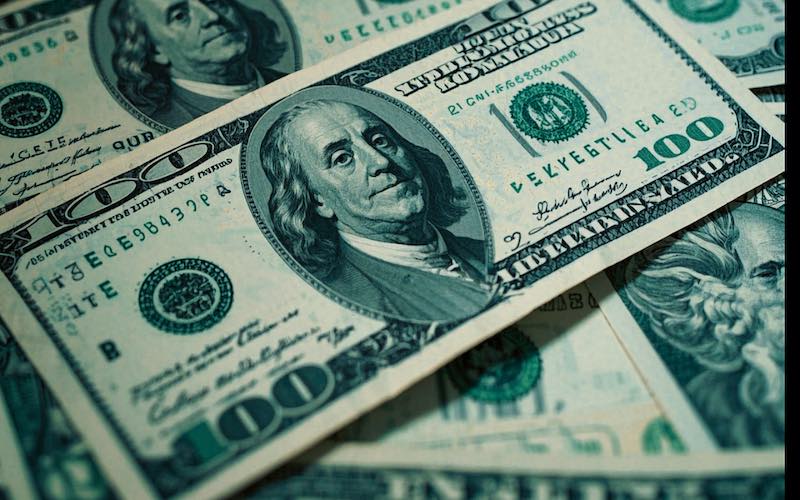October 23rd Financial Breakfast: Gold prices fell to a near two-week low, the US will announce significant sanctions against Russia, and oil prices rose over 3%.
2025-10-23 07:26:42

Focus on the day
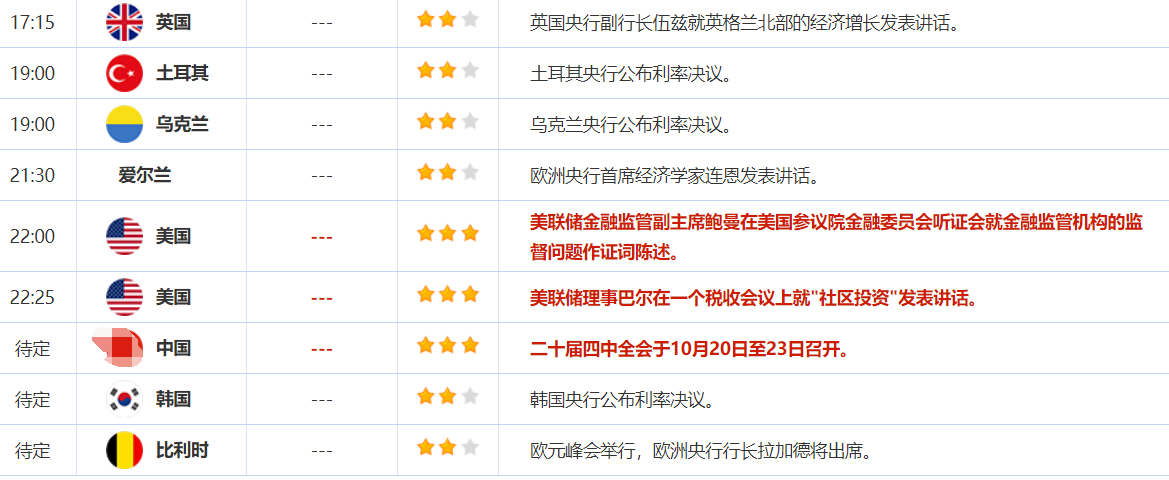
UK October CBI retail sales data, Canada August retail sales data, Eurozone October preliminary consumer confidence index.
stock market
Wall Street closed lower on Wednesday as a series of mixed earnings reports, including a disappointing report from Netflix, weighed on risk sentiment, while investors assessed the Trump administration's consideration of restricting exports of products containing or made with U.S. software. All three major U.S. stock indexes extended losses, with the Nasdaq suffering the biggest decline due to weakness in technology and communications services stocks.
"On top of that, we had some disappointing numbers from some tech companies," said Tom Hainlin, national investment strategist at US Bank Wealth Management. "But it's been a pretty good earnings season, (stocks) aren't far off all-time highs, and we wouldn't tell investors to change their allocations based on a day like today."
Netflix fell 10.1% after the streaming company's quarterly profit fell short of expectations, sparking concerns about its overvalued stock.
Texas Instruments Inc. reported lower-than-expected revenue and profit forecasts, dragging the chipmaker's shares down 5.6%.
The Philadelphia Semiconductor Index, which has outperformed the broader market this year on the back of a surge in artificial intelligence, fell 2.4% on Wednesday after hitting a record high on Monday.
Tesla, the first AI-related momentum stock among the "Big Seven" to release its third-quarter earnings report, reported better-than-expected revenue, driven by the expiration of a tax credit that boosted electric vehicle sales in the United States. Its stock fell 0.5% in after-hours trading. Intuitive Surgical's third-quarter earnings beat expectations, sending its stock soaring 13.9%. AT&T fell 1.9%, despite adding more wireless subscribers than expected in the third quarter. Third-quarter earnings season is well underway, with 86% of the companies that have reported exceeding Wall Street expectations.
Analysts now expect S&P 500 third-quarter earnings to grow 9.3% year-over-year, up from the 8.8% annual growth rate expected as of October 1, according to the latest data from the London Stock Exchange Group (LSEG).
Hainlin said that you have to meet market expectations to get a high valuation, and overall, most companies have now met or even exceeded these expectations. As for those companies that fail to meet the standards, investors will not wait patiently for them.
The Dow Jones Industrial Average fell 0.71% to 46,590.41 points; the S&P 500 fell 0.53% to 6,699.40 points; and the Nasdaq fell 0.93% to 22,740.40 points.
Among the 11 major sectors of the S&P 500, industrials fell the most, while energy saw the biggest gain.
Gold Market
Gold prices fell to a near two-week low on Wednesday after suffering their biggest one-day drop in five years in the previous session as investors booked profits ahead of key U.S. inflation data due this week.
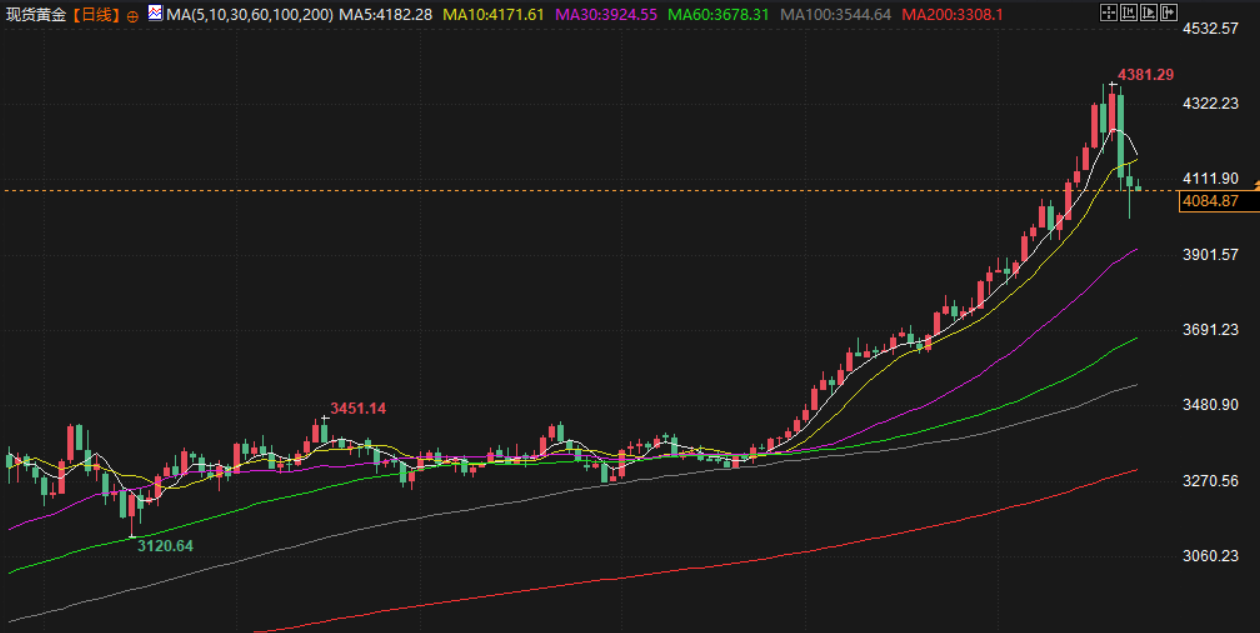
Spot gold was trading at $4,054.34 an ounce, down 1.7%, after rising as high as $4,161.17 in early trading. U.S. gold futures for December delivery settled down 1.1% at $4,065.40 an ounce.
So far this year, driven by geopolitical tensions, economic uncertainty, expectations of US interest rate cuts and strong inflows into ETFs, gold prices have hit record highs several times, rising by 57%.
"Given the significant upside over the past few weeks, it's not entirely surprising to see some profit-taking ahead of Friday's CPI report," said David Meger, director of metals trading at High Ridge Futures. Technically, gold is finding support at its 21-day moving average at $4,005.
Friday's U.S. Consumer Price Index (CPI) report, delayed by the U.S. government shutdown, is expected to show core inflation held steady at 3.1% in September.
Investors have almost fully priced in a 25 basis point rate cut at the Federal Reserve's meeting next week.
Meanwhile, Russia said on Wednesday it was still preparing for a possible summit between President Vladimir Putin and U.S. President Donald Trump.
Spot silver fell 1.6% to $47.95 an ounce, following a 7.1% drop on Tuesday. Platinum rose 4.5% to $1,620.83, while palladium gained 0.1% to $1,409.80.
Oil Market
Oil prices rose on Wednesday and extended gains after settlement, with Brent crude futures rising 3.98% to $63.76 a barrel and U.S. crude futures rising 4.23% to $59.66.
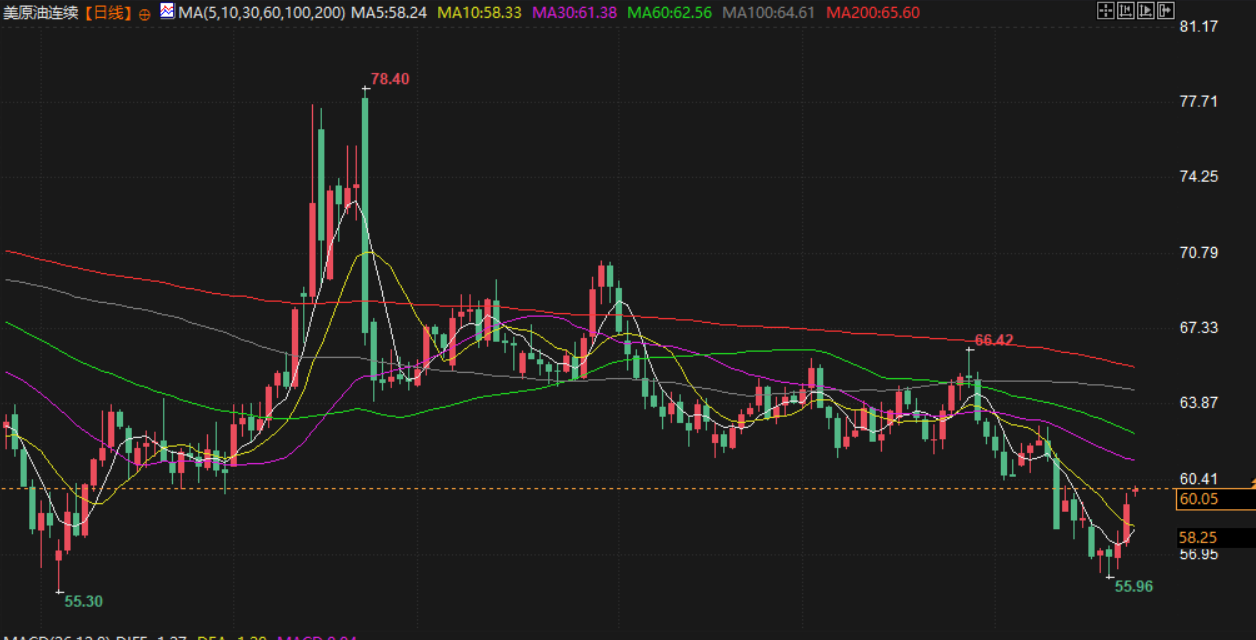
Brent crude futures settled up 2.07% at $62.59 a barrel, while U.S. crude futures rose 2.20% to $58.50. U.S. Treasury Secretary Jeffrey Benson said the United States will announce sanctions against Russia on Wednesday or Thursday.
"We're going to be announcing a significant increase in sanctions on Russia in two days," Bessant told reporters at the White House on Wednesday. Growing U.S. energy demand also supported oil prices.
The U.S. Energy Information Administration (EIA) said on Wednesday that U.S. crude oil, gasoline and distillate inventories fell last week. Crude oil inventories fell by 961,000 barrels to 422.8 million barrels, while analysts polled by Reuters expected a 1.2 million-barrel increase.
“For the off-season, that’s very impressive,” said Phil Flynn, senior analyst at Price Futures Group. “It shows that demand for oil remains strong, and the supply data doesn’t point to an oil glut, at least in the U.S..”
News that a planned summit between Trump and Russian President Vladimir Putin had been shelved, coupled with pressure from Western governments on Asian buyers to reduce purchases of Russian oil, fueled concerns about supply disruptions.
Trump said he spoke with Indian Prime Minister Narendra Modi on Tuesday, adding that Modi assured him that India would limit its oil purchases from Russia.
"Oil prices rose following reports that the United States and India are close to a trade deal and India may gradually reduce its imports of Russian crude oil, which could boost demand for other crude grades," said Soojin Kim, an analyst at MUFG.
foreign exchange market
The British pound was the weakest major currency on Wednesday after the UK's inflation rate unexpectedly remained at 3.8% in September, below economists' and the Bank of England's expectations. The pound fell as much as 0.5% against the dollar. It was last trading 0.13% lower at 1.336 against the dollar in New York.
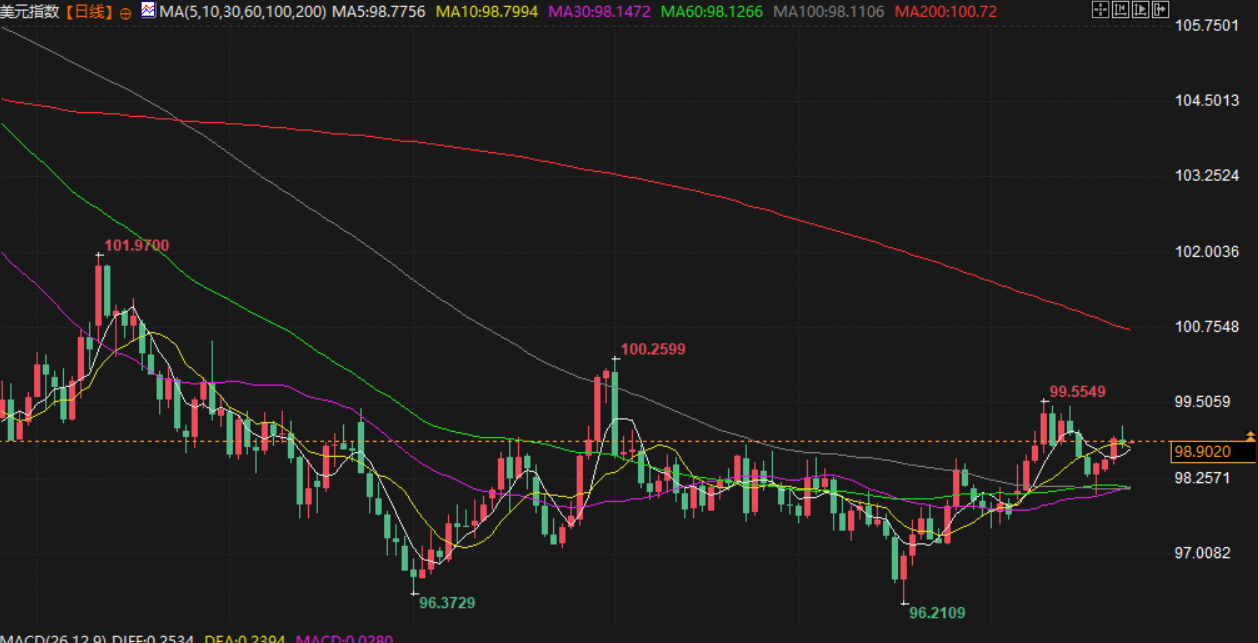
Francesco Pesole, a currency analyst at ING, said that when the Bank of England recently began to signal hawkishness, it held a view, contrary to the prevailing market view, that inflation would be stronger than the market or economists expected. However, it appears that this expectation has not been fully borne out. "Investors believe the probability of a Bank of England rate cut before the end of the year is around 75%, up from around 46% before the data was released.
"Overall, our economists believe today's data provides meaningful, real inflation softening news and increases the risk that the Bank of England's next rate cut will come sooner than its baseline forecast for the February meeting," Goldman Sachs analysts said in a research note.
The yen suffered its biggest monthly drop since July, with the dollar down 0.04% at 151.875 yen. The yen hit a one-week low against the dollar on Tuesday as sources said Japan's new Prime Minister Sanae Takaichi is preparing an economic stimulus package that could exceed last year's 13.9 trillion yen ($92.19 billion) to help households cope with inflation.
The yen has fallen 2.5% this month, its biggest monthly drop since July, as investors expect expansionary fiscal policy from the new government and tensions with the Bank of Japan weigh on the currency.
"Takaichi's first speech as prime minister suggests she wants to reassure markets and not exacerbate yen weakness for now," said ING's Pesole.
Takaichi, an advocate of loose fiscal and monetary policies, said on Tuesday that the specific means of monetary policy would be decided by the Bank of Japan. New Finance Minister Katayama Satsuki said on Wednesday that coordination between the government and the Bank of Japan is necessary to ensure effective economic and monetary policies.
The Bank of Japan will announce its latest policy decision on October 30. Interest rate futures prices suggest a roughly 20% chance of a 25 basis point rate hike to 0.75%.
The dollar index, which measures the greenback's strength against a basket of six currencies, fell 0.08% to 98.897 in New York trading after three consecutive days of gains. U.S. President Trump on Tuesday rejected a request from Democratic congressional leaders to hold a meeting, saying it would take until the government shutdown ends.
The impasse complicates the task facing the Federal Reserve at its Oct. 29 meeting. A Reuters poll of economists shows the Fed will cut its key interest rate by a quarter percentage point next week and again in December. Economists remain widely divided over where rates will end next year.
Federal funds rate futures are implying a 97% chance of a 25 basis point rate cut, according to LSEG.
The euro rose 0.09% to $1.16 against the dollar as a planned summit between U.S. President Donald Trump and Russian President Vladimir Putin was shelved after Russia refused an immediate ceasefire in Ukraine.
International News
Sources: The Trump administration is considering a plan to restrict some exports of products produced with or containing U.S. software worldwide.
The US Senate rejected the temporary funding bill for the 12th time as the shutdown continues
On October 22nd, local time, the U.S. Senate failed to pass a temporary funding bill proposed by Republicans, continuing the government shutdown impasse. This was reportedly the 12th time the Senate has voted down a temporary funding bill since the recent government shutdown. Due to significant disagreements between the Republican and Democratic parties on core issues such as health care and welfare spending, the Senate failed to pass a new temporary funding bill before the end of the previous fiscal year on September 30th, resulting in the depletion of funds to maintain normal federal operations and the shutdown beginning on October 1st.
The government shutdown has halted private business operations, leaving the Federal Reserve without ADP labor data for nearly two months.
The Federal Reserve is no longer able to obtain private-sector employment data from independent providers, exacerbating the difficulty policymakers face in obtaining timely economic information during the federal government shutdown. ADP Research, which provides data covering approximately 20% of the U.S. private-sector workforce, stopped providing data after Federal Reserve Governor Christopher Waller cited the data in his August 28th speech, according to a person familiar with the matter. The reason for ADP's decision is unclear. A spokesperson for the company, which has provided data to the Fed for years, did not immediately respond to a request for comment. Due to the government shutdown, most federal statistical agencies have stopped publishing economic reports. This has impacted policymakers' understanding of the economy ahead of their October 28th-29th meeting.
EU member states approve 19th round of sanctions against Russia
On October 22nd local time, Denmark, the rotating EU presidency, announced that EU member states had approved the 19th round of sanctions against Russia, including a ban on imports of Russian liquefied natural gas. It is reported that the sanctions also include travel restrictions on Russian diplomats and the inclusion of 117 ships from Russia's "shadow fleet" on the list.
U.S. national debt exceeds $38 trillion for the first time
On October 22, local time, the latest data released by the U.S. Treasury Department showed that as of October 21, the total U.S. federal government debt exceeded $38 trillion for the first time. This was just over two months after the total U.S. federal government debt reached $37 trillion in mid-August.
US eases restrictions on use of Western long-range missiles against Ukraine
According to a Wall Street Journal report on October 22nd, US officials said the Trump administration had lifted a key restriction, allowing Ukraine to use some long-range missiles provided by Western allies. This will enhance Ukraine's strike capabilities against targets within Russia. The Ukrainian Armed Forces General Staff issued a statement on the evening of the 21st, saying that Ukrainian forces carried out a "large-scale air strike" against a chemical plant in Bryansk, Russia, a "critical facility" for the production of gunpowder and rocket fuel. Ukrainian forces used Storm Shadow cruise missiles to penetrate Russian air defenses during the operation. The Storm Shadow cruise missile, manufactured by the European Missile Group, is launched from fighter jets and has a range of over 250 kilometers.
Sources familiar with the matter: The Federal Reserve proposed a plan to significantly reduce the capital increase of large banks
The Federal Reserve has presented the framework of a revised plan to other US regulators, proposing a significant relaxation of the capital requirements proposed for large Wall Street banks under the Biden administration, according to people familiar with the matter who requested anonymity to discuss the plan. Some officials have calculated that the terms of the Fed's plan will increase the total capital requirements of most large banks by approximately 3% to 7%. While the framework does not include specific projections, this estimate is lower than the 19% increase in the 2023 proposal and the 9% increase proposed in a compromise proposal last year. Some people familiar with the matter said that for banks with larger trading portfolios, the increase in capital requirements may be smaller or even decrease due to the new requirements.
Domestic News
Many foreign institutions have expressed their bullish outlook on A-shares and are investing in growth
Since October, the A-share market has been volatile at high levels. Recently, several foreign institutions, including Goldman Sachs, JPMorgan Chase, and UBS, have expressed continued optimism about the medium-term outlook. Goldman Sachs believes that the Chinese stock market is entering a slow bull market, and as the market unfolds, investors should shift their mindset from "stripping off positions on rallies" to "buying on dips." JPMorgan Chase also expressed optimism about the CSI 300 Index's performance through the end of 2026.
Gold price fluctuations shocked gold sellers: Shuibei sellers said that silver fell out of demand overnight.
International gold and silver prices plummeted. On Wednesday, many gold sellers expressed shock at the magnitude of the price fluctuations. A sales manager at a gold jewelry store told reporters that due to the price correction, their store's transaction volume on Wednesday was lower than in recent days. Meanwhile, silver prices have also fallen over the past two days. Some shop owners reported that many silver products were sold out in the past few days, but after Tuesday's sharp drop, such products are currently unavailable. Furthermore, the decline in gold prices has also led to a cooling of the recently active gold recycling market. (CCTV Finance)
IDC: China's AI infrastructure market is experiencing explosive growth, with Alibaba Cloud leading the market share
International data firm IDC recently released its latest report, "China Intelligent Computing Cloud Infrastructure Market (AI IaaS) (H1 2025) Tracking," which shows that in the first half of 2025, China's AI infrastructure services market grew by 122.4% year-on-year to RMB 19.87 billion. Alibaba Cloud maintained its top position with a 24.7% share, securing first place in both the GenAI IaaS (generative AI infrastructure) and Other AI IaaS (classic AI infrastructure) segments. AI IaaS refers to AI infrastructure that uses specialized AI chips such as GPUs as its core computing power. In recent years, driven by the wave of generative AI and large models, the AI IaaS market has experienced explosive growth. The IDC report shows that in the first half of 2025, GenAI IaaS's share of the AI IaaS market will further expand to over 80%, with a year-on-year increase of 219.3%. IDC points out that Alibaba Cloud has achieved rapid growth and maintained its leading market share by continuously increasing capital expenditures on AI infrastructure and increasing its computing power reserves. By providing diversified AI IaaS services such as Lingjun AI clusters and GPU elastic computing power, Alibaba Cloud meets customers' intensifying training and inference needs across various AI scenarios. IDC predicts that by 2029, the overall AI infrastructure market will be worth nearly 150 billion yuan.
- Risk Warning and Disclaimer
- The market involves risk, and trading may not be suitable for all investors. This article is for reference only and does not constitute personal investment advice, nor does it take into account certain users’ specific investment objectives, financial situation, or other needs. Any investment decisions made based on this information are at your own risk.




















